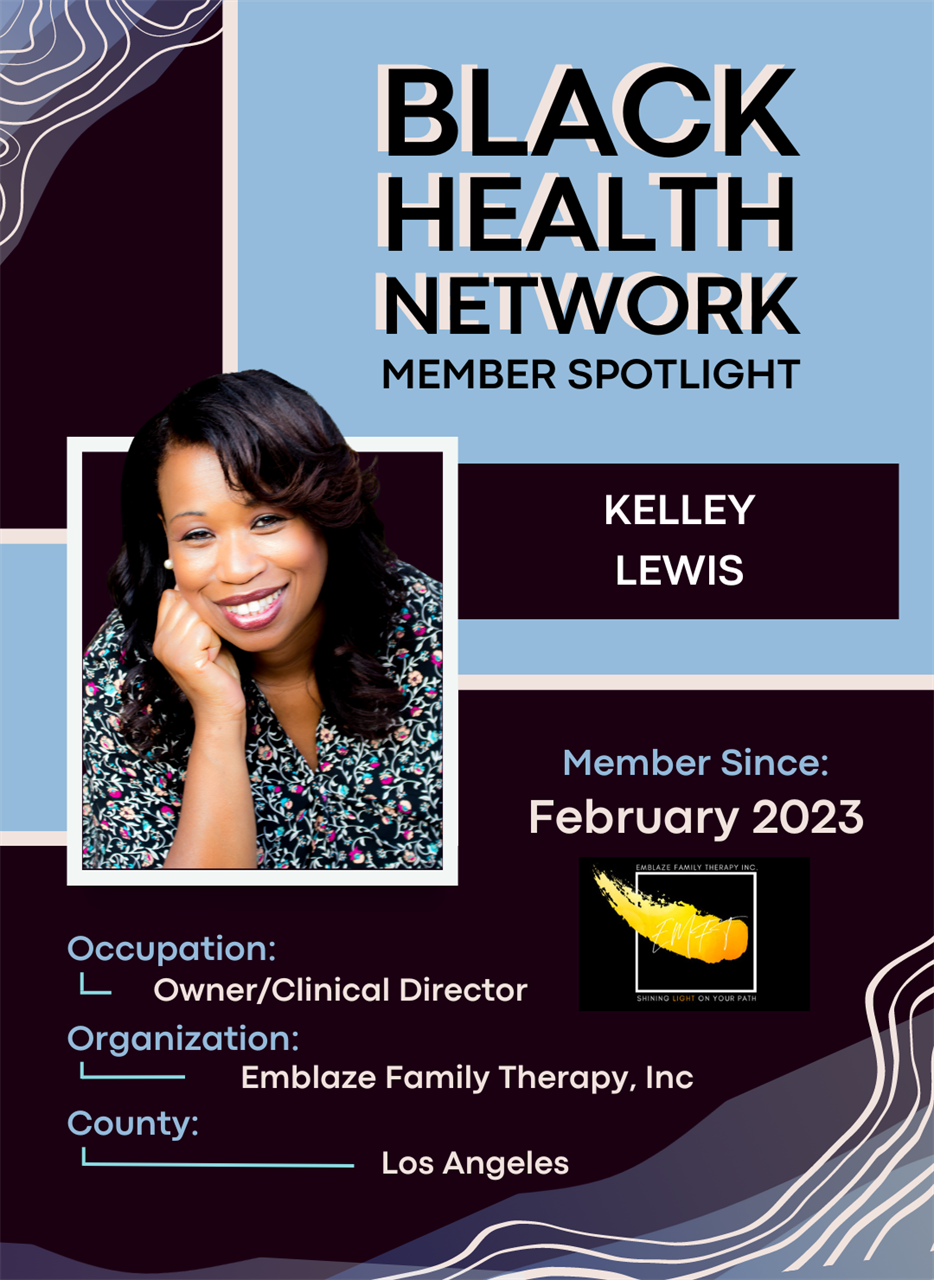
How long have you been a member of the Black Health Network, and what drew you to CBHN?
I've been a member of CBHN for just over a year now. What drew me to CBHN was their dedicated advocacy for Black Health Equity in California.
What is your current profession?
I am a Licensed Marriage and Family Therapist specializing in trauma, with an emphasis on racial and generational trauma along with the exploration of genealogy.
From your perspective, what barriers exist in achieving health equity for Black Californians?
I believe the historical trauma of accessing healthcare has led to distrust in the healthcare system. Distrust due to lack of access to quality healthcare services, affordable healthcare coverage, preventive care, distance to services, and limited access to healthcare professionals who are culturally affirming and welcoming, are some of the barriers to achieving health equity for Black Californians. Lack of or limited representation in legislative roles has also been a barrier that is continuing to improve.
Both in your work and with CBHN, how have you been able to prioritize the health of Black Californians?
As a therapist, prioritizing the mental health of Black Californians has been central to my practice. I have actively sought to create a safe and affirming space where my clients feel understood, validated, and supported in their mental health journeys. The invaluable experience and insights gained as being a part of the inaugural HEAT program have reinforced the significance of health equity work for Black Californians and instilled within me a sense of courage and confidence, to continue advocating for health equity among Black Californians.
You were part of the first HEAT cohort, our Health Equity and Advocacy Training Program! What did you appreciate most about the experience? How have you applied the advocacy training to your work?
What I appreciated most about the HEAT experience was being given the opportunity to talk to legislators about something that I am passionate about. Also, the training and support of the CBHN staff were amazing and helped me feel prepared to be able to go to Sacramento. Before becoming a therapist, I worked to advocate for jobs and adequate health care services for individuals. In my early work as a therapist, I advocated for mental health services for children in schools so they could be successful in that environment. When I went to Sacramento, I realized that I missed doing advocacy work.
I have actually looked for some advocacy jobs and have talked to many people about my experience and encouraged them to reach out to their state legislatures and not be fearful when there is an issuethey are passionate about.
What inspires you to keep doing the work you do?
What inspires me to keep doing the work I do is seeing the positive impact it has on people's lives. Knowing that I can support others in their journey towards healing and well-being is motivating. Seeing the resilience and strength of Black communities throughout California inspires me to continue advocating for positive change.